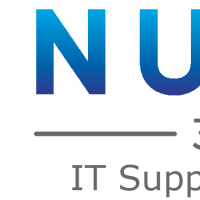30.08.2023
Do you need bespoke software to streamline your business process?
Introduction:
If you need help creating a database management system we can help.
If you have an existing Access system and your dev has left we can help.
In today's digital age, efficient data management is crucial for businesses to streamline their operations and make informed decisions. Microsoft Access and SQL Server are two powerful tools that can be used to create internal database systems. In this article, we will explore how these tools can be leveraged to build robust and scalable databases for internal use.
. If you prefer to create a custom database, you can design your own tables, forms, reports, and other database objects
. Access also offers techniques to import existing data into your new database.
. SSMS provides a graphical interface for managing databases, while T-SQL allows you to write scripts to create and manage databases programmatically. SQL Server supports features such as stored procedures, triggers, views, and advanced querying capabilities.
. SSMA helps convert Access database objects to SQL Server-compatible objects, ensuring a smooth transition. Migrating to SQL Server allows businesses to leverage its scalability, performance, and advanced features.Conclusion:
Microsoft Access and SQL Server are powerful tools for creating internal database systems. Access provides an easy-to-use interface and templates for quick database development, making it suitable for small to medium-sized businesses. On the other hand, SQL Server offers scalability, advanced features, and robust security, making it ideal for larger organizations.When the data requirements of a business outgrow the capabilities of Access, migrating to SQL Server becomes a logical choice. The migration process can be facilitated using tools like SSMA, ensuring a smooth transition.By leveraging the strengths of Microsoft Access and SQL Server, businesses can create efficient and scalable internal database systems that support their data management needs and drive informed decision-making.
If you need help creating a database management system we can help.
If you have an existing Access system and your dev has left we can help.
In today's digital age, efficient data management is crucial for businesses to streamline their operations and make informed decisions. Microsoft Access and SQL Server are two powerful tools that can be used to create internal database systems. In this article, we will explore how these tools can be leveraged to build robust and scalable databases for internal use.
- Microsoft Access:
Microsoft Access is a user-friendly database management system that allows users to create and manage databases without the need for extensive coding knowledge. It provides well-designed templates that enable users to quickly build databases for various purposes. Access is particularly useful for small to medium-sized businesses that require a simple and intuitive database solution.1
4
4
- SQL Server:
SQL Server is a robust and scalable relational database management system developed by Microsoft. It is designed to handle large amounts of data, support multiple concurrent users, and provide advanced security features. SQL Server is suitable for organizations that require a high-performance and enterprise-grade database solution.
2
- Migrating from Access to SQL Server:
As businesses grow and their data requirements increase, they may outgrow the limitations of Microsoft Access. Access has size and user limitations, making it less suitable for large-scale applications. In such cases, migrating the Access database to SQL Server is a logical step.3
3
Microsoft Access and SQL Server are powerful tools for creating internal database systems. Access provides an easy-to-use interface and templates for quick database development, making it suitable for small to medium-sized businesses. On the other hand, SQL Server offers scalability, advanced features, and robust security, making it ideal for larger organizations.When the data requirements of a business outgrow the capabilities of Access, migrating to SQL Server becomes a logical choice. The migration process can be facilitated using tools like SSMA, ensuring a smooth transition.By leveraging the strengths of Microsoft Access and SQL Server, businesses can create efficient and scalable internal database systems that support their data management needs and drive informed decision-making.
Property
Why Do We Need Emergency Lighting?
Emergency lighting plays a critical role in ensuring life safety first in any…
Employment & HR
Labour’s new Employment Rights Bill: challenges employers...
The introduction of Labour’s Employment Rights Bill on 10th October 2024 has created a significant shift in how…
More Articles
Business Management
The Value of a Sustainability Strategy in the Tender Process
In today’s competitive landscape, businesses face increasing pressure to demonstrate their commitment to…
Business Management
Unlocking the Power of Raw Financial Data
At Master of Coin Consulting, we offer independent strategic finance advice to help micro to medium-sized businesses…
Would you like to promote an article ?
Post articles and opinions on Professionals UK
to attract new clients and referrals. Feature in newsletters.
Join for free today and upload your articles for new contacts to read and enquire further.







